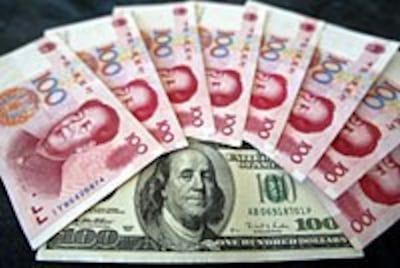
Pressure is rising on China to speed up currency reforms following new calls from U.S. lawmakers and the International Monetary Fund.
Despite a June 13 Treasury Department decision not to charge China as a currency manipulator, critics argue that the yuan is deliberately undervalued by as much as 40 percent.
Treasury officials are required by law to report on China’s monetary policies twice a year to determine whether China is using the low value of the yuan to gain an unfair advantage in trade. The June 13 report sparked an immediate response in the U.S. Congress, where pressure has been building over factory closings, job losses, and last year’s record U.S. $232 billion trade deficit with China.
On the same day, a bipartisan group of four senators introduced a measure, the Currency Exchange Rate Oversight Reform Act of 2007, that would require action with or without proof of China’s intent to manipulate.
The legislation calls for U.S. consultations with any country whose currency is found to be “fundamentally misaligned.” If talks fail to produce changes within a year, the United State would then bring complaints to the World Trade Organization (WTO).
Bans on U.S. financing for projects in the designated country would take effect, and multilateral bank financing would also be opposed.
Changes in Congress
Meanwhile, on June 15, the International Monetary Fund (IMF) announced an overhaul of its rules for the “surveillance” of currencies.
The new guidelines describe currency manipulation in terms of “fundamental exchange rate misalignment,” using language similar to that contained in the U.S. legislation.
In interviews with Radio Free Asia, experts predicted that some form of China currency legislation will easily pass this year, while some called for steps even stronger than those already proposed.
Patricia Mears, director of international commercial affairs at the Washington-based National Association of Manufacturers, said “I think this is the time when something is going to pass.”
“I’ve followed this issue now for as long as it’s been an issue in Washington,” Mears said. “And one key difference that you have—in addition to just time and the erosion in confidence that something will be done on the part of the Chinese to address this—there also is the change in Congress.”
“You now have a Democratic Congress,” said Mears.
Asked what China could do to head off U.S. action or possible trade penalties, Mears said “We’ve never taken a position on what’s the right number [for revaluation of the yuan]. We’d know it when we see it, but I think you’d have to at least be looking at double digits.”
Firms 'can't compete'
Alan Tonelson, a research fellow at the U.S. Business and Industry Council, based in Washington, said that U.S. companies are facing pressure that has only gotten worse with the passage of time.
“It’s often a matter of corporate life and death for our companies because they can’t compete against countries like China on the basis of price,” Tonelson said.
“When the Chinese government and the Chinese treasury artificially changes the market for their goods and reduces [U.S. profit] margins practically to zero, they create a competition that our companies can’t possibly win.”
Tonelson criticized the new legislation because it calls for a WTO complaint process that would take time and produce uncertain results. Tonelson said his group preferred legislation proposed earlier that would have applied tariffs, forcing China to contest them.
“[The new legislation] is not nearly tough enough,” he said. “And the problem is it still makes it way too difficult and too expensive for relatively small companies like our members, who are among the main victims of foreign government currency manipulation, to use the U.S. trade law system.”
“These cases tend to drag out forever. Plus, there is no certainty of outcome.”
Tonelson said his group’s members have also lost patience with negotiations held under the U.S.-China Strategic Economic Dialogue.
“Not only is the U.S. government not getting anywhere, and not only are companies like our members—again, who are victims of China’s currency manipulation—not getting anywhere, they’re falling further and further behind.”
Original reporting by Michael Lelyveld. Edited for the Web by Richard Finney .
